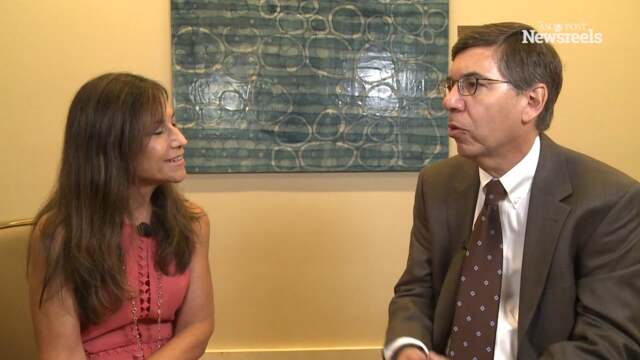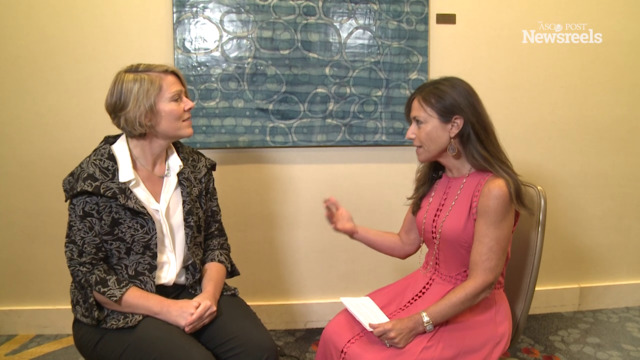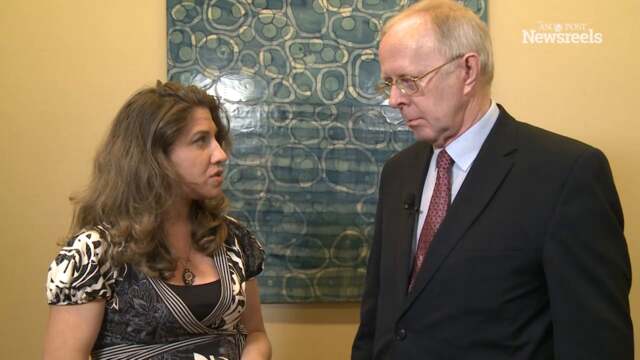Jimmie C. Holland, MD, and Tammy A. Schuler, PhD, on Talking With Patients About Their Distress: A Demonstration
2015 IPOS APOS World Congress of Psycho-Oncology
Jimmie C. Holland, MD, of Memorial Sloan Kettering Cancer Center, and Tammy A. Schuler, PhD, of the Association for Behavioral and Cognitive Therapies, demonstrate a dialogue between a clinician and a recently diagnosed cancer patient whose distress was discovered with the use of the Distress Thermometer.
Related Videos
Lori Wiener, PhD, DCSW, LCSW-C, and Paul B. Jacobsen, PhD
Lori Wiener, PhD, DCSW, LCSW-C, of the National Cancer Institute, and Paul B. Jacobsen, PhD, of the Moffitt Cancer Center, discuss the highlights of this year’s meeting, which for the first time brings together the international and American psychosocial oncology societies.
Lori Wiener, PhD, DCSW, LCSW-C, and Karen Fasciano, PsyD
Lori Wiener, PhD, DCSW, LCSW-C, of the National Cancer Institute, and Karen Fasciano, PsyD, of the Dana-Farber Cancer Institute, discuss the challenges of the art and science of psycho-oncology.
Irene Higginson, MD
Irene Higginson, MD, of Cicely Saunders International, discusses the goals of psychosocial palliative care for patients around the world with advanced cancer.
Wendy Lichtenthal, PhD, and David Kissane, MD
Wendy Lichtenthal, PhD, of Memorial Sloan Kettering Cancer Center, and David Kissane, MD, of Monash University, discuss the importance of and challenges with attending to the whole family during palliative care.
Jeff Dunn, AO, PhD, GAICD
Jeff Dunn, AO, PhD, GAICD, of the Cancer Council Queensland, discusses reducing the burden of cancer on individuals and communities.





